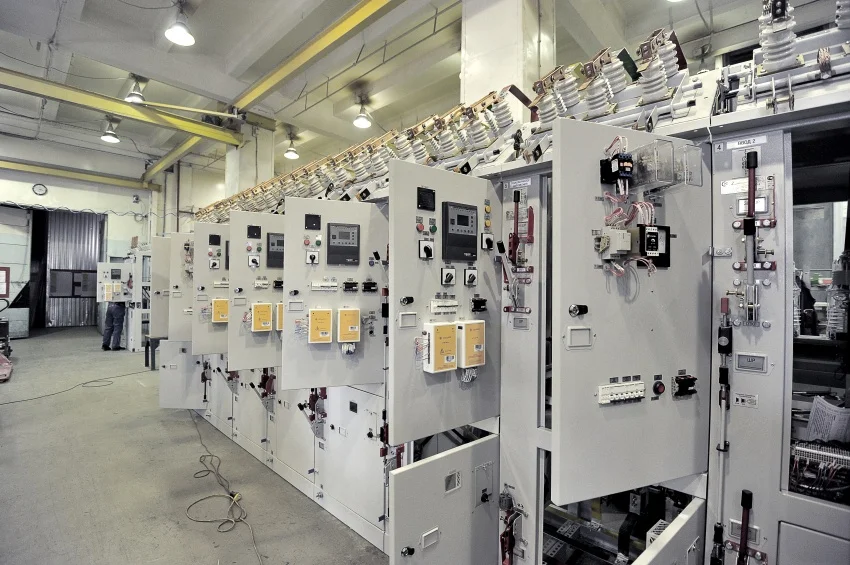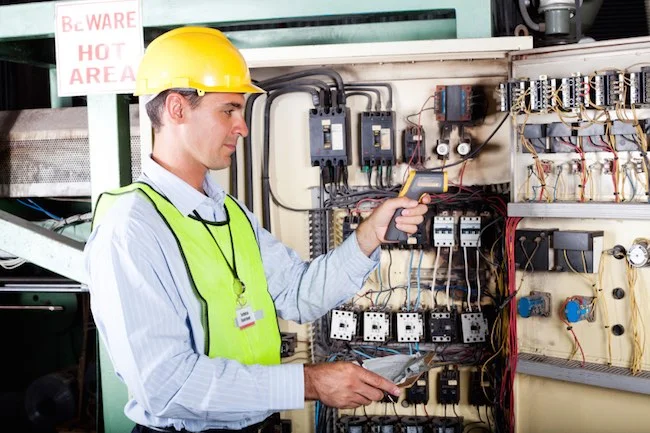Industrial panel cooling systems are critical for maintaining optimal operating conditions inside control enclosures. However, selecting the right system isn’t just about internal heat load—it also depends heavily on the external environment.
Whether your panel is installed outdoors in a hot climate or indoors in a high-humidity facility, ignoring environmental variables can lead to overheating, corrosion, and system failure. This guide outlines six environmental considerations that should inform the design and selection of any panel cooling solution.
1. Internal Heat Load and Thermal Regulation
The starting point in any panel cooling design is calculating the heat load generated by internal electrical components. Power electronics, transformers, and inverters all produce heat, which must be dissipated to avoid failure.
Even if ambient temperatures seem manageable, a buildup of internal heat can quickly raise the enclosure’s internal temperature. A properly sized panel cooling system helps maintain internal temperatures below 35°C while also managing internal humidity to prevent condensation.
2. Ambient Temperature: Indoor vs Outdoor Installations
Ambient temperature is a major factor in determining the type of cooling system required. In indoor environments with controlled temperatures, natural ventilation or air-to-air heat exchangers may suffice.
However, in outdoor applications—especially in hot regions like the Middle East or Southeast Asia—ambient temperatures may exceed internal design thresholds. In such cases, active cooling systems like compressor-based air conditioners are essential to protect internal components.
3. Solar Exposure and Nearby Heat Sources
If a control panel is exposed to direct sunlight or placed near industrial heat sources (e.g., furnaces, compressors), radiant heat can add to the thermal load.
Even well-designed panels can suffer temperature spikes without appropriate insulation or shading. In high-radiation areas, it’s critical to combine shading methods with high-efficiency panel cooling systems that maintain internal stability regardless of external heat stress.
4. Humidity and Condensation Risks
High humidity environments create the risk of condensation, especially when night temperatures drop below the dew point. This moisture buildup inside the enclosure can damage sensitive electronics and lead to short circuits.
To counter this, a thermostatically controlled enclosure heater can work in tandem with a cooling system to prevent internal temperature dips and keep humidity under control. Proper humidity management is a core part of reliable panel cooling design.
5. Airborne Contaminants and Corrosive Vapors
Dust, fibers, salt, and chemical vapors pose a major risk to control panel longevity. These airborne pollutants can corrode connectors, disrupt sensors, or clog ventilation paths.
For harsh environments—such as coastal regions or chemical processing facilities—a closed-loop cooling solution is recommended. These systems isolate the internal air from the external environment, preventing the ingress of harmful particles while maintaining temperature control.
6. Exposure to Water, Snow, and High-Pressure Cleaning
Outdoor panels and enclosures in food-grade or pharmaceutical facilities often face direct exposure to rain, snow, and washdowns. Water ingress can compromise both the cooling system and internal components.
In such cases, your panel cooling system must be sealed and robust enough to operate in wet or high-pressure conditions without losing thermal efficiency. Choose systems with corrosion-resistant coatings and fully enclosed designs.
Conclusion: Select Panel Cooling Systems Built for Real-World Conditions
Choosing the right panel cooling system requires more than just calculating internal heat. A comprehensive environmental assessment—covering temperature, humidity, contaminants, and exposure—ensures reliable and long-term operation.
At Cooltechx, we specialize in advanced cooling solutions for industrial control panels, energy storage systems, and communication enclosures. Our air-cooled and liquid-cooled products are engineered for tough environments and backed by professional engineering support.
Final Thought: Environment-First Design = Long-Term Reliability
Environmental conditions are not just side notes—they directly influence the lifespan and performance of your control panels. That’s why Cooltechx offers customizable cooling solutions tailored to real-world applications, including industrial production lines, outdoor power systems, and lithium battery energy storage.
Looking for advice on selecting the right enclosure air conditioner or heat exchanger? Our engineering team is ready to help you plan a solution that balances performance, protection, and energy efficiency.






